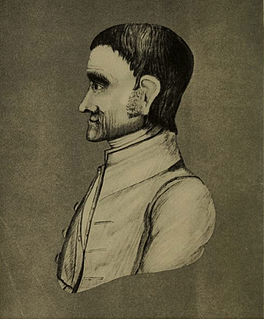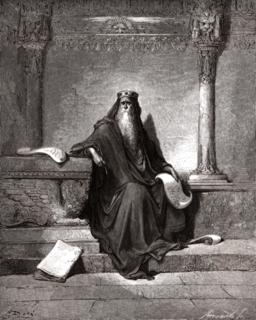A Quote by John Woolman
Wealth is attended with power, by which bargains and proceedings, contrary to universal righteousness, are supported; and hence oppression, carried on with worldly policy and order, clothes itself with the name of justice and becomes like a seed of discord in the soul.
Related Quotes
Yet, after all, faith is not our righteousness. It is accounted to us in order to righteousness (Rom 4:5, GREEK), but not as righteousness; for in that case it would be a work like any other doing of man, and as such would be incompatible with the righteousness of the Son of God; the righteousness which is by faith. Faith connects us with the righteousness, and is therefore totally distinct from it. To confound the one with the other is to subvert the whole gospel of the grace of God. Our act of faith must ever be a separate thing from that which we believe.
We humans have had from time unknown the compulsion to name things and thus to be able to deal with them. The name we give to something shapes our attitude toward it. And in ancient thought the name itself has power, so that to know someone's name is to have a certain power over him. And in some societies, as you know, there was a public name and a real or secret name, which would not be revealed to others.
To me, the essence of keeping the soul nourished is obedience to one's conscience. I don't think that the soul can be nourished unless people have a strong sense of conscience that they have educated and developed and soaked in the universal and timeless principles of integrity and service. This way, the individual's soul becomes part of the universal soul of service, contribution, and making a difference.
Had I no other proof of the immortality of the soul than the oppression of the just and the triumph of the wicked in this world, this alone would prevent my having the least doubt of it. So shocking a discord amidst a general harmony of things would make me naturally look for a cause; I should say to myself we do not cease to exist with this life; everything reassumes its order after death.
Indeed all the saints are taught the same lesson - to renounce their own strength, and rely on the power of God; their own policy, and cast themselves on the wisdom of God; their own righteousness, and expect all from the pure mercy of God in Christ, which act of faith is so pleasing to God, that such a soul shall never be ashamed.
Death is the inseparable antecedent of life; the seed dies in order to produce the plant, and earth itself is rent asunder and dies at the birth of Dionusos. Hence the significancy of the phallus, or of its inoffensive substitute, the obelisk, rising as an emblem of resurrection by the tomb of buried Deity at Lerna or at Sais.
He that doth righteousness; that is, righteousness which the gospel calleth so, is righteous; that is, precedent to, or before he doth that righteousness. For he doth not say, he shall make his person righteous by acts of righteousness that he shall do; for then an evil tree may bear good fruit, yea, and make itself good by doing so; but he saith, He that doth righteousness is righteous; as he saith, He that doth righteousness is born of him.






































